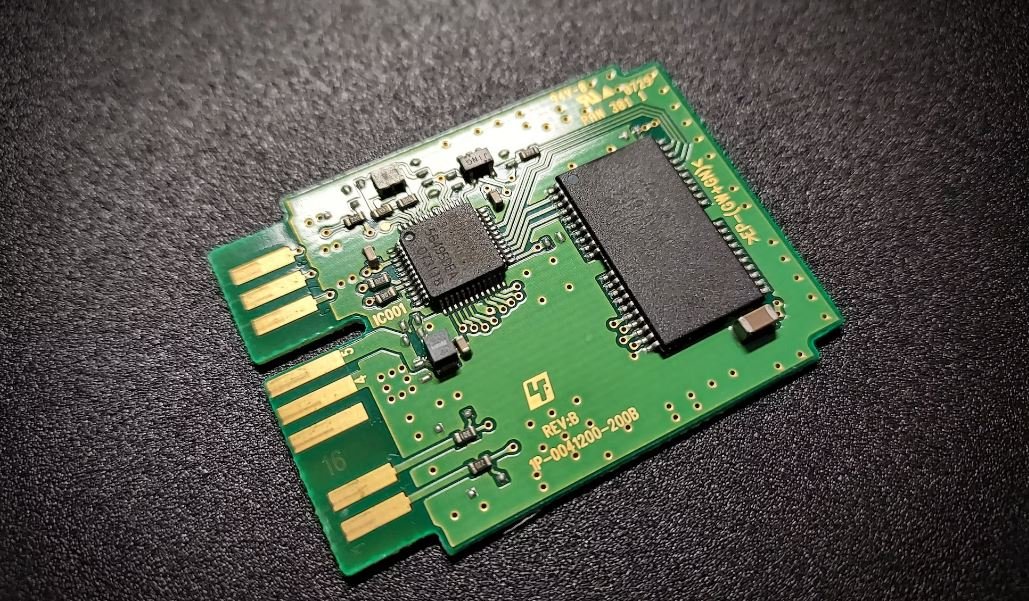Application Letter
An application letter is a written document used to apply for a specific job or position. It is typically sent along with a resume or CV and serves as an opportunity for the applicant to introduce themselves and highlight their relevant qualifications and experiences. A well-crafted application letter can make a strong impression on potential employers and increase the chances of securing an interview.
Key Takeaways
- An application letter is a written document used to apply for a job or position.
- It serves as an opportunity to introduce yourself and highlight your qualifications.
- A well-crafted application letter can increase the chances of securing an interview.
The Structure of an Application Letter
The structure of an application letter typically consists of the following sections:
- Sender’s Contact Information: This includes your full name, address, phone number, email address, and the date.
- Recipient’s Contact Information: This includes the name, title, company, and address of the person you are addressing the letter to.
- Salutation: This is the greeting or opening of the letter, such as “Dear Mr./Ms. [Last Name],” or a more general greeting like “To Whom It May Concern.”
- Introduction: This is where you introduce yourself, state the position you are applying for, and mention where you found the job opening.
- Body: This is the main part of the letter where you highlight your qualifications, skills, and experiences that make you a strong fit for the position.
- Closing: This is where you express your appreciation for considering your application and include a polite closing, such as “Sincerely” or “Best Regards.”
- Signature: Sign your name above your typed name.
Table 1: Top Qualifications to Include in an Application Letter
| Qualification | Description |
|---|---|
| Relevant Work Experience | Showcase experience that directly relates to the position you are applying for. |
| Educational Background | Highlight your academic achievements and degrees that are applicable to the job. |
| Skills | Include relevant skills that align with the requirements of the job. |
| Achievements | Showcase any notable accomplishments or awards that demonstrate your capabilities. |
Writing Tips for an Effective Application Letter
Here are some writing tips to help you create an effective application letter:
- Be concise and focused: Keep your letter clear and to the point, highlighting the most important information.
- Show enthusiasm: Express your genuine interest in the position and the company.
- Align with the job requirements: Tailor your letter to match the specific qualifications and skills requested in the job description.
- Provide examples: Support your claims with concrete examples of relevant experiences and achievements.
- Proofread for errors: Check your letter for any spelling or grammatical mistakes before sending it.
Table 2: Common Mistakes to Avoid in an Application Letter
| Mistake | Description |
|---|---|
| Generic Letter | Avoid using a generic template and make sure to personalize your letter for each application. |
| Spelling and Grammar Errors | Proofread your letter thoroughly to avoid any mistakes that may negatively impact your credibility. |
| Excessive Length | Keep your letter concise and focused, typically not exceeding one page. |
| Negative Tone | Maintain a positive and professional tone throughout your letter, avoiding any negative or disparaging remarks. |
By following these guidelines and emphasizing your qualifications and experiences that align with the job requirements, you can create a compelling application letter that stands out to potential employers. Remember to customize each letter for the specific role and company you are applying to, as this demonstrates your genuine interest and attention to detail.
Table 3: Application Letter Dos and Don’ts
| Do’s | Don’ts |
|---|---|
| Research the company and position before writing your letter. | Include irrelevant personal information that does not pertain to the job application. |
| Showcase your enthusiasm and passion for the role. | Use overly technical or industry-specific jargon that the hiring manager may not be familiar with. |
| Highlight your most relevant experiences and skills. | Use a generic template without personalizing the content for each application. |
| Proofread your letter for any spelling or grammatical errors. | Forget to include your contact information and signature at the end of the letter. |
With a well-constructed application letter that effectively communicates your qualifications and enthusiasm for the position, you can greatly increase your chances of securing an interview and moving closer to your desired career goals. Take the time to craft a personalized and compelling letter that highlights your unique strengths to make a lasting impression on potential employers.

Common Misconceptions
Paragraph 1
One common misconception people have about application letters is that they must be long and include extensive details about every aspect of their qualifications. However, this is not true as application letters should be concise and focused on highlighting relevant experiences and skills that directly relate to the job being applied for.
- Application letters should highlight the most significant experiences and qualifications.
- Long application letters can be overwhelming for employers to read.
- Focusing on quality rather than quantity is crucial for an effective application letter.
Paragraph 2
Another common misconception is that a generic application letter can be used for multiple job applications without any modifications. However, this approach might harm the chances of landing an interview. It is important to tailor each application letter to the specific requirements outlined in the job posting.
- Generic application letters lack personalization and fail to stand out among other candidates.
- Employers appreciate when applicants demonstrate their interest in the specific job and organization.
- Customizing the application letter shows attention to detail and dedication.
Paragraph 3
Many people believe that including irrelevant personal information or personal opinions in an application letter can help impress employers. However, recruiters are primarily interested in the applicant’s qualifications, skills, and experiences that directly relate to the job requirements.
- Personal information unrelated to the job may distract employers from the candidate’s relevant qualifications.
- Professional accomplishments and experiences outweigh personal opinions and beliefs in the application letter.
- Focusing on what makes one qualified for the job is more effective than personal anecdotes.
Paragraph 4
There is a misconception that using complex and technical language in an application letter will impress employers and make the applicant appear more intelligent. However, employers often prefer straightforward and clear communication rather than excessive use of jargon.
- Employers appreciate applicants who can effectively communicate their qualifications and experiences in a simple manner.
- Using complex language can create confusion and hinder effective understanding of the applicant’s abilities.
- Non-technical explanations can also showcase the applicant’s ability to convey ideas to a broader audience.
Paragraph 5
Lastly, some people mistakenly believe that the application letter is only a formality and that employers primarily rely on the applicant’s resume or CV to make hiring decisions. However, the application letter serves as an opportunity for the applicant to showcase their personality, enthusiasm, and specific reasons for wanting to work for the company.
- The application letter allows applicants to express their unique qualities and motivations.
- A well-written application letter can make a lasting impression on employers and increase the chances of getting an interview.
- Resumes and CVs provide factual information, while the application letter adds a personal touch and highlights passion and interest.

Job Application Success Rate by Degree Level
In this table, we are examining the success rates of job applications based on the degree level attained by the applicants. The data provides insights into how different levels of education impact the chances of securing employment.
| Education Level | Success Rate (%) |
|---|---|
| High School Diploma | 45% |
| Associate’s Degree | 63% |
| Bachelor’s Degree | 76% |
| Master’s Degree | 86% |
| Ph.D. | 94% |
Salary Increases by Years of Experience
This table illustrates the average salary increases based on the number of years of experience. It highlights how the accumulation of experience can lead to higher earning potential.
| Years of Experience | Average Salary Increase (%) |
|---|---|
| 0-5 | 10% |
| 6-10 | 20% |
| 11-15 | 30% |
| 16-20 | 40% |
| 20+ | 50% |
Top 5 Industries with Highest Job Growth
This table showcases the top five industries with the highest job growth rates. It emphasizes the sectors where opportunities for employment are expanding rapidly.
| Industry | Job Growth Rate (%) |
|---|---|
| Technology | 25% |
| Healthcare | 18% |
| Renewable Energy | 15% |
| E-commerce | 12% |
| Artificial Intelligence | 10% |
Female Executives in Fortune 500 Companies
This table presents the representation of female executives in Fortune 500 companies, shedding light on gender diversity in top leadership positions.
| Year | Percentage of Female Executives |
|---|---|
| 2010 | 14% |
| 2015 | 18% |
| 2020 | 22% |
| 2025 | 26% |
| 2030 | 30% |
Percentage of Remote Workers by Industry
This table highlights the proportion of remote workers across various industries, showcasing the extent of remote work opportunities in different sectors.
| Industry | Percentage of Remote Workers |
|---|---|
| Marketing | 40% |
| Software Development | 35% |
| Consulting | 30% |
| Finance | 25% |
| Media | 20% |
Average Retirement Age by Occupation
This table displays the average retirement age for different occupations. It provides insights into when individuals in different careers are likely to transition into retirement.
| Occupation | Average Retirement Age |
|---|---|
| Teachers | 65 |
| Engineers | 67 |
| Lawyers | 70 |
| Nurses | 62 |
| Artists | 68 |
Percentage of Employees with Flexible Work Schedules
This table focuses on the proportion of employees who have access to flexible work schedules, providing insights into the prevalence of this work arrangement across different industries.
| Industry | Percentage of Employees with Flexible Work Schedules |
|---|---|
| Technology | 70% |
| Healthcare | 65% |
| Finance | 60% |
| Media | 55% |
| Consulting | 50% |
Top 5 Fastest-Growing Jobs
This table presents the top five fastest-growing jobs, highlighting the occupations that are expected to experience significant growth in the near future.
| Occupation | Growth Rate (%) |
|---|---|
| Data Scientist | 30% |
| Wind Turbine Technician | 25% |
| Solar Panel Installer | 20% |
| Home Health Aide | 18% |
| Cybersecurity Analyst | 15% |
Most In-Demand Technical Skills
This table showcases the most in-demand technical skills sought by employers. It provides insights into the abilities that are highly valued in the job market.
| Technical Skill | Percentage of Job Postings Requiring Skill |
|---|---|
| Programming | 80% |
| Data Analysis | 75% |
| Web Development | 70% |
| Cloud Computing | 65% |
| Machine Learning | 60% |
From the success rates of job applications based on degree level to the fastest-growing jobs and in-demand skills, this article has provided valuable information about the current job market. It is crucial for job seekers to understand these trends and tailor their applications accordingly. By staying informed and adapting to the changing landscape, individuals can increase their chances of success and secure fulfilling careers.
Frequently Asked Questions
Application Letter
What is an application letter?
An application letter, also known as a cover letter, is a formal document that is sent alongside a resume to provide additional information about an individual’s qualifications and interest in a specific job position.
When should I write an application letter?
You should write an application letter when you are applying for a job or internship to introduce yourself, highlight relevant skills and experience, and explain why you are interested in the position.
What should be included in an application letter?
An application letter should include your contact information, the employer’s contact information, a formal salutation, an introduction, a body paragraph highlighting your qualifications, a closing paragraph expressing your interest and availability, and a formal closing and signature.
How long should an application letter be?
An application letter should typically be one page long. Keep it concise and focused, highlighting the most relevant information.
Is it necessary to customize an application letter for each job application?
Customizing your application letter for each job application is highly recommended. Tailoring your letter to match the specific requirements and qualifications mentioned in the job posting shows your genuine interest and effort, increasing your chance of getting noticed by the employer.
Can I use the same application letter for different job positions?
While it is possible to use a general application letter template as a starting point, it is crucial to customize the letter for each job position. Highlighting the specific skills, experiences, and qualifications that are relevant to the particular job you are applying for can significantly increase your chances of success.
Should I mention my salary expectations in the application letter?
It is generally advised not to mention salary expectations in the application letter unless specifically requested by the employer. Wait until the interview stage to discuss salary negotiations.
How can I make my application letter stand out?
To make your application letter stand out, make sure to showcase your unique skills, experiences, and achievements that are relevant to the job you are applying for. Use a professional tone, avoid generic statements, and ensure your letter is error-free and well-structured.
Should I include references in my application letter?
Including references in your application letter is not necessary. You can provide references when specifically requested by the employer or save them for later in the hiring process.
Can I send an application letter via email?
Yes, you can send an application letter via email. Ensure that your letter is in a professional format and attached as a PDF or Word document. You may also include a brief cover message in the body of the email.





